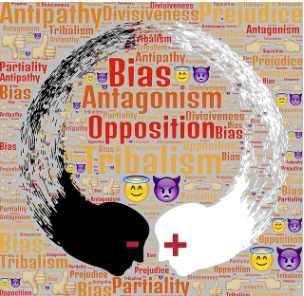I strongly disagree with the people with the herd mentality of running South Sudan on the politics of ethnicity. We South Sudanese fought long and hard against successive, brutal regimes in Khartoum since 1955, in a war that was led by Gen Joseph Lagu, through to the SPLA/SPLM under Dr. John Garang de Mabior from 16 May 1983. These regimes in Khartoum were dominated by the political elites from eastern Sudan, mostly Muslims of Arab descent. They viewed South Sudanese in Khartoum as second-class citizens and sought to run Sudan based on the Islamic ideology of exclusion.
Anyone who lived in Khartoum during that time will agree with me that the most sensitive and powerful government positions were reserved for the Muslim politicians from the East. The others were only given symbolic roles and reduced to puppets without real power or influence.
The injustice in Khartoum then made Dr Garang and others form the SPLM and take up arms to fight the successive governments for 21 years. South Sudan finally gained independence in 2011, but just two years later, we fell into a crisis, not because of external forces, but because of the tribal elites from within. These ethnic supremacists wanted to rule indefinitely, without democracy or internal party elections. They denied others the opportunity to realize their dreams.
When Riek Machar expressed his intention to contest for the SPLM chairmanship, he was perceived as a threat by those tribal leaders. They blocked any manner of democratic competition in the SPLM.
Machar was pushed out of Juba through the ethnic politics driven by the fear that the Nuer Community wanted to take power from their Dinka counterparts. The public was then misled by false claims of a coup in Juba, claims that have since been debunked by the African Union Commission of Inquiry.
After the designed political crisis in 2013, the political space in the country has been dominated by one ethnic group, particularly the Dinka from Bahr el-Ghazal. Decisions at the highest levels of government, including the current presidential decrees for the sackings and appointments, can attest to this.
The unfolding security situation is deliberately designed by the traditional elites to prevent Dr Machar from becoming the president. The truth is simple: the tribal political leaders fear losing to Dr Machar in a free and fair election. They have instead resorted to violence, misinformation, threats, arbitrary arrests of the SPLM-IO political and military officials, and intimidation.
I want to appreciate the U.S. and the international community for standing firm with the people of South Sudan during this crisis, designed by politicians who harbor deep personal hatred against the First Vice President. The outdated politics of divide and rule must end. South Sudan belongs to its entire people, not to one tribe or a certain region.
We should not continue to shout that it is our government, and yet there are no basic services. Where are the Bahr el Ghazal roads? We must reject the politics of division and embrace a new era of hope, where ideas compete, where values matter, and where democracy prevails. You may try to silence opposition voices, but you cannot retire the will of the people by force.
SPLM Party internal power struggles after the appointment of Vice President Dr Benjamin Bol Mel must not jeopardize the future of our nation. Dr Machar is not the problem and was in South Africa under the confinement and the war did not stop. He did not delay salaries. He did not sell our oil in advance to 2028. He did not bomb civilians in Upper Nile region. He did not impose Mangar on us and he did not prevent the road to Bahr el-Ghazal.
Blaming Dr Machar is simply a tactic to distract us from the real issues and the failure of those in power. Let us think critically before endorsing further violations of the Peace Agreement or declarations of war, designed to protect a failing, tribal status quo.
May the Lord stand and bless the people of South Sudan at this time of crisis.
The author is a member of the SPLM-IO National Liberation Council (NLC) and former chairperson of the Relief and Rehabilitation Commission in Northern Bahr el-Ghazel State. He can be reached via Majokdit2024@gmail.com.
The views expressed in ‘opinion’ articles published by Radio Tamazuj are solely those of the writer. The veracity of any claims made is the responsibility of the author, not Radio Tamazuj.




